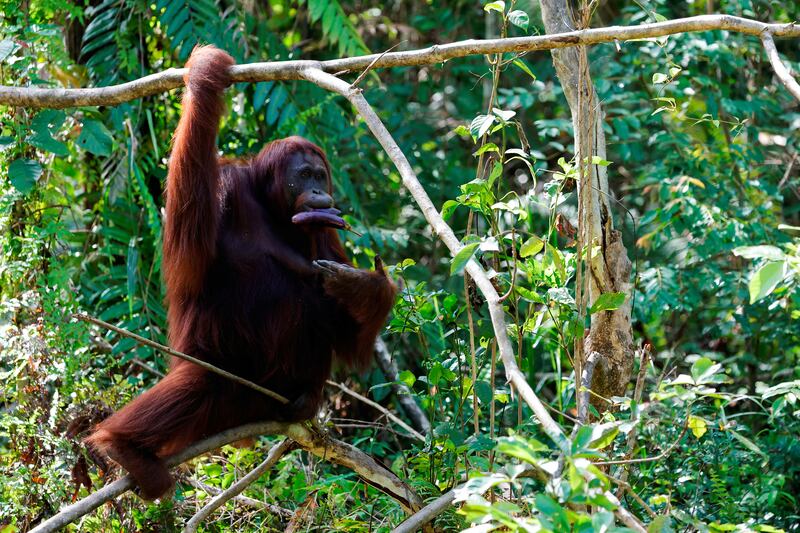Indonesia’s president on Wednesday broke ground on a new international airport in the country’s future capital, a sprawling project on Borneo island that has drawn fierce opposition from environmental groups who say it will destroy swathes of rainforest and threaten endangered orangutans.
The airport was one of several infrastructure projects that Joko "Jokowi" Widodo inaugurated and inspected in Nusantara, the name of the new city, including a hospital, a school and offices for the central bank and other state institutions.
“The airport is a special airport that will support government activities in the new capital and enhance connectivity in National Capital Nusantara,” Jokowi said in a speech broadcast on his office’s YouTube channel.
The airport, which is located about 15 km (nine miles) from the city center and covers more than 1,700 acres (688 hectares), would be fully operational by the end of 2024, the president said.
He added it would be able to accommodate large aircraft like the Boeing 777 and the Airbus A380.
Jokowi announced his plan to relocate the capital about 1,700 kilometers (1,000 miles) from Jakarta in 2019, citing the city’s problems with overcrowding, pollution, traffic congestion and sinking land.
The government hopes to start moving some 1,800 civil servants to the new city by 2024, when Jokowi's second and final term ends.
But his administration has encountered challenges in attracting foreign investors for the ambitious project, which comes with a hefty price tag of U.S. $33 billion and will be primarily funded by private investors and state-owned enterprises.

‘Repeating the same mistakes’
The new capital has encountered stiff opposition from environmental activists, who have warned the massive construction project and its supporting infrastructure will cause irreversible damage to Borneo’s forests, which are home to some of the world’s richest biodiversity and endangered species like orangutans.
Husen Suwarno, an activist from the East Kalimantan Coastal Working Group, said the airport and other projects, such as a highway, had already cleared more than 4,300 acres (1,747 hectares) of forest along the west bank of the Wain River, a protected area that serves as a corridor for orangutans between two other forest habitats.
“We have not received any environmental impact analysis or strategic environmental assessment for the new capital,” Husen told BenarNews. “This will have a huge impact on the environment and biodiversity.”
In addition, the airport was built on land that used to be a palm oil plantation and was still claimed by local residents as their own, he said.
Dwi Sawung, a campaign manager for Walhi, an environmental group, said the government was rushing the development projects in the new capital without proper planning or consultation.
“They are creating a huge environmental problem with their carbon footprint and their destruction of the forests, not only where they are building the city but also where they are sourcing the materials,” Dwi told BenarNews.
Dwi said he doubted that the new city would be green and livable by 2024, when the government aims to start relocating some offices.
“They are repeating the same mistakes they made in Jakarta, which is already a disaster,” he said.
